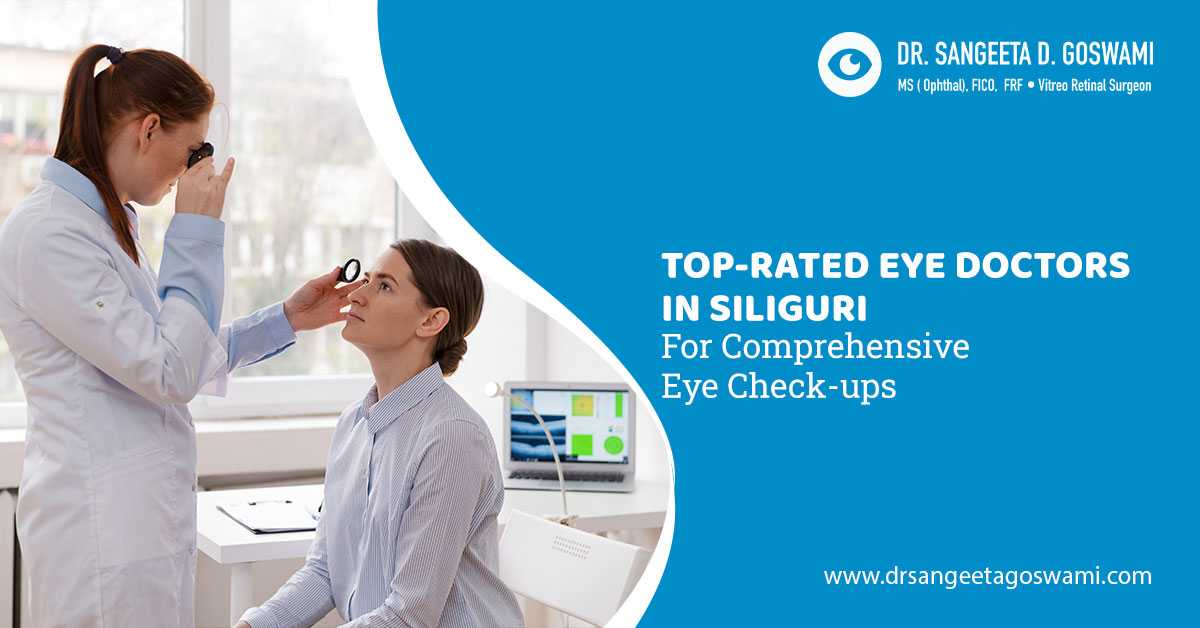What can happen after the retina surgery? This question may have come to your mind and it is valid, let’s find the answer to your question. Retina surgery is an important procedure used for treating various conditions related to the retina such as retinal detachment, diabetic retinopathy, macular holes, and more. Well, we all know that surgery is very important and needed for preserving or improving the overall vision.
Remember that the post-operative care and recovery phase is as important as the surgery. Proper care during this whole period ensures the best possible results, preventing further complications and promoting healing. Select the best retina specialist in Siliguri, for proper treatment and overall recovery from the retina surgery.
Understanding Retina Surgery
Before understanding the importance of post-operative care, it is very important to understand what retina surgery is, and how they are generally performed. The main goal behind performing a retina surgery is that, it is used to repair or treat issues related to the retina, which tends to be a light-sensitive located at the back of the eye. This procedure may involve laser treatment, vitrectomy (Which is the removal of the vitreous gel), or scleral buckle (a band around the eye used for reliving the tension). The main aim behind this surgery is to repair tears, detachments, or other damage caused to the retina, it is often used for improving vision or prevention of further vision loss.
Immediate Post-Surgery Experience
After your surgery has taken place, you may experience some kind of discomfort, which is quite normal, so don’t stress about it. This this period try to follow the instructions, which are provided by the Best Retina specialist in Siliguri, for the overall improvement of your retina condition.
Here’s what you can expect right after your retinal surgery has been completed:-
Local Anesthesia Effects:
In case you have local anesthesia, you might feel a little confused, but you will not experience any kind of pain during this procedure. Once the effect of anesthesia is over, then you might experience mild discomfort, which can be managed by prescribed pain relief.
Vision Changes:
Your overall vision may turn out to be blurry or foggy just after the surgery has taken place or is completed. This tends to be quite common, and necessary for the overall healing of your eye. However, sometimes the overall recovery may take weeks or even months, depending on the type of surgery, which is performed.
Eye Protection:
After the surgery has taken place, the healthcare specialist may advise you to wear an eye shield, especially while sleeping, to protect your eye from any kind of accidental pressure or rubbing.
Common Post-Operative Symptoms and How to Manage Them
It is quite normal to experience a few symptoms after the overall surgery has taken place. These symptoms may vary based on the type of surgery which has been performed. But as an individual who is facing issues related to the retina, it is very important to understand them and know the ways by which we can manage them so that we can feel more comfortable during the recovery process.
Here are some common postoperative symptoms and tips for managing them:
1. Mild Pain and Discomfort
After your retina surgery has taken place, it is very common to feel mild pain or discomfort after that. You may also feel soreness in or around the eye, especially when the effect of anesthesia is over.
Ways to manage it:
• Try to take pain relievers that are advised by your healthcare specialist.
• Try to follow the prescribed pain management plan, and avoid taking more than the recommended dose.
2. Redness or Irritation
After the surgery has taken place Redness or a feeling of irritation in the eye is a very common symptom, especially in case of surgical incisions or minor bleeding.
Ways to manage it:
• Try to use the prescribed eye drops advised by your healthcare specialist to reduce dryness and irritation.
• Avoid rubbing the eye to prevent further irritation and disruption to the healing process.
3. Floaters and Blurry Vision
Just after the surgery completion, you may experience floaters or blurry vision. This tends to be quite common in surgeries like vitrectomy or retinal detachment surgery.
Ways to manage it:
• Floaters and blurry vision tend to be for a short period, so don’t panic during this situation.
• Try to give your eyes as much as rest possible, and avoid straining them by reading books or use of excessive digital services, during the recovery period.
4. Increased Sensitivity to Light
After your retina surgery has been completed, your eyes may be more sensitive to the light, which is normal due to the healing process.
Ways to manage it:
• Try to wear sunglasses, in case going outside, or in bright light to protect your eyes, and reduce discomfort.
• Exposure to direct sunlight can be harmful for you so avoid it, for a longer period.
5. Discharge
Some clear or yellowish discharge from the eyes can take place, in case any incision was made during the procedure.
Ways to manage it:
• During this time try to clean your eyes gently with a sterile cloth, if any kind of discharge takes place.
• In case your discharge becomes excessive, or if you notice unusual colors like green or thick, then immediately contact the retina doctor in Siliguri for advice.
Tips for a Smooth Recovery
Some tips for a smooth recovery are given below:-
• Rest properly to get enough rest, just after your surgery is completed, so that your body gets enough time for healing.
• Stay Hydrated: - Hydration is the best solution to any kind of physical problem, so try to stay hydrated for promoting healing, and reducing swelling.
• Eat a balanced diet: - Try to eat a balanced diet, which is rich in protein, and lower in fats for the improvement of your eye health.
Conclusion:
After the retina surgery has taken place, the recovery period is very important for you, for the best possible results. By following the instructions of a Retina specialist in Siliguri, like attending follow-up appointments, eating a balanced diet, staying hydrated, and taking enough rest, you can recover quickly and reduce the overall risk of future complications. Remember that the healing process tends to be quite long, and you need to be patient during this time. But with good care, you can surely overcome this situation in the best way.






